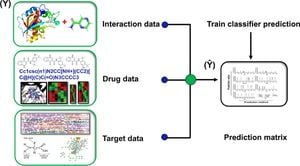Japan's Nikkei share average faced turbulence recently, as investors grappled with the potential for increased tariffs under U.S. President Donald Trump. Following initial gains, the Nikkei traded flat, shifting back and forth due to the uncertain prospects surrounding U.S. trade policy.
On February 1, 2023, reports emerged indicating Trump was contemplating imposing new tariffs on imports. Subsequently, the Nikkei, which had risen as much as 0.86%, settled flat at 38,901.44 points. Investors responded to the shifting information by selling off stocks tied to the prospects of tariffs immediately after news of Trump reconsidering immediate tariff implementation.
According to Hiroyuki Ueno, chief strategist at Sumitomo Mitsui Trust Asset Management, “Investors who bought stocks after news... but they sold those stocks off immediately after another news about Trump imposing those tariffs soon.” This comment highlights the market's volatility, hinting at how much these geopolitical moves can affect trading. The continued uncertainty surrounding the outcome of negotiations has made the political climate increasingly significant for investors.
Further adding to the anxiety, Trump indicated he might impose tariffs as high as 25% on imports from Canada and Mexico, which raised concerns about Japan’s exports as well. Stocks of significant Japanese firms took hits — SoftBank Group's shares dropped by 0.53%, and automotive giants Mazda and Honda saw declines of 2.15% and 0.27% respectively.
With markets watching closely, many investors eagerly awaited the Bank of Japan's policy decisions, scheduled for February 3. Yugo Tsuboi, chief strategist at Daiwa Securities, noted, “Investors are seeking to know the pace of the BOJ’s rate hike,” citing worries over the direction of both U.S. policies and Japan's economic strategies.
Meanwhile, Masakazu Tokura, chairman of the Japan Business Federation, publicly urged the U.S. administration to pursue policies fostering predictability and encouraging business investment. “I hope the U.S. government will adopt policies... businesses to invest with confidence,” Tokura expressed, underscoring the need for stable economic relations between Japan and the United States.
Tokura reflected upon the historic ties between the countries, noting Japan has consistently ranked first globally for direct investment within the U.S. for the past five years. He affirmed, “Keidanren is dedicated to contributing to U.S. economic growth through promoting continuous Japanese investment and job creation and solidifying our countries' economic bond.” This statement aligns with efforts to maintain effective dialogue and collaboration.
His remarks came during turbulent times, especially after President Biden's administration blocked Nippon Steel Corp.'s $14.1 billion acquisition of United States Steel Corp. This unprecedented move raised significant concerns among Japanese business leaders about future investments and potential politically motivated interceptions.
Tokura viewed the developments as cautionary, emphasizing the necessity for the U.S. to not only protect its interests but also encourage foreign investment as part of broader economic stability. He remarked, “The United States' dynamic economy and strong leadership are integral not only to its own prosperity but also to global economic stability and progress.”
These fluctuations and calls for stability reveal the interconnectedness of the Japanese and American economies, as both nations navigate the uncertainty of Trump's trade policies. Throughout this political maneuvers, the hope for mutual growth remains echoed by business leaders on both sides.
Looking forward, the pressure mounts on both Trump and Japanese officials to pave the way for smoother economic relations. Given the precarious situation, the forward guidance of international trade policies will be pivotal. Stakeholders, investors, and market analysts alike will continue to monitor how these discussions shape the economic outlook for both nations.
Overall, the possibility of tariffs looms large, and both American and Japanese businesses are left to grapple with the ramifications of these political decisions. With the future of U.S.-Japan economic relations hanging on the balance, there remains hope for fostering stronger ties built around stability, predictability, and mutual interest.



